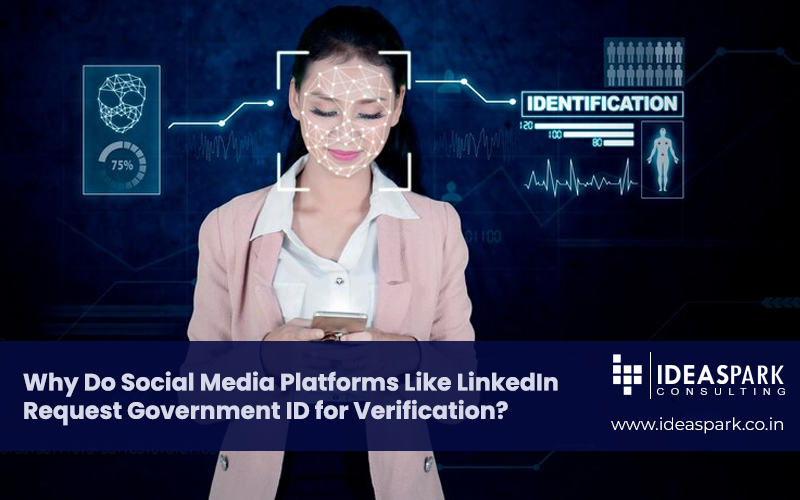Introduction
In recent years, social media platforms have become an integral part of our personal and professional lives. LinkedIn, known for its focus on professional networking, has implemented a verification process that includes asking users for their government-issued identification. This practice has sparked debates around privacy, legality, potential uses, and the risk of misuse. In this article, we will explore why platforms like LinkedIn are asking for government IDs, whether it is legal, potential use cases, and the concerns associated with this practice.
Why Ask for Government ID?
User Verification: The primary reason behind requesting government IDs is user verification. LinkedIn aims to ensure that the accounts on its platform represent real individuals and not fake profiles. This verification process helps maintain the integrity and credibility of the platform.
Preventing Impersonation: By asking for government IDs, LinkedIn can minimize the risk of impersonation. This is crucial in a professional network where trust and credibility are paramount. Verifying users’ identities helps in building a safer online community.
The Legal Aspect
The legality of social media platforms requesting government IDs varies depending on the platform’s terms of service and the user’s jurisdiction. In many cases, it is legal for platforms to request such information, provided they comply with data protection laws. Users are typically required to provide consent for this process.
Possible Uses
Identity Verification: As mentioned earlier, the primary use of government ID verification is to confirm users’ identities, ensuring that the platform is populated by real individuals.
Age Verification: Some platforms use this information to determine a user’s age, ensuring that they are of legal age to use the platform. This is often required to comply with age-related content restrictions.
Security: Verifying users’ identities adds an extra layer of security to the platform, making it more difficult for malicious actors to create fake accounts.
Potential Misuse and Concerns
While there are legitimate reasons for requesting government IDs, there are also concerns associated with this practice.
Privacy: This concern revolves around the idea that when users provide their government-issued identification to social media platforms, they are sharing sensitive and personal information. Users fear that this data might be mishandled, misused, or even breached by the platform or malicious actors. Privacy is a fundamental right, and individuals want assurance that their data will be treated with the utmost care and respect for their confidentiality.
Identity Theft: Identity theft is a rare but severe consequence of sharing personal information, including government IDs, online. If a social media platform’s security measures are insufficient, it becomes susceptible to data breaches. In such cases, hackers may gain access to users’ government IDs, potentially using this information for fraudulent activities, financial theft, or impersonation.
Data Security: This concern is closely related to the previous points. Users want assurance that their personal information, including government IDs, is stored securely. They worry about how this data is used by the platform and whether it’s adequately protected from unauthorized access. A breach of data security can have severe consequences, ranging from identity theft to privacy violations.
Targeted Advertising: Users often recognize that providing government IDs might enable platforms to create more accurate user profiles. This can lead to more personalized advertising, which can be a double-edged sword. While some users appreciate personalized content, others worry that it can become invasive or overly targeted, eroding their sense of privacy. Additionally, users may fear that their government IDs could be used to categorize them based on sensitive demographics, potentially leading to discriminatory practices in advertising.
Conclusion
The practice of requesting government IDs for verification on social media platforms like LinkedIn is a complex issue. While it serves a legitimate purpose in ensuring user authenticity and security, it also raises valid concerns about privacy and data protection. The legality of this practice depends on regional regulations and the platform’s policies. Users should exercise caution and carefully consider the implications of sharing their government-issued IDs online. Platforms, on their part, must prioritize robust data security and transparency to address these concerns and build trust among their user base.
#SocialMediaPrivacy #OnlineIdentity #DataSecurity #PrivacyMatters #IdentityVerification #LegalRights #UserPrivacy #GovernmentID #PersonalData #DigitalVerification #OnlineSafety #IdentityProtection #DataPrivacy #OnlineVerification #PrivacyConcerns #SecurityMeasures #UserData #Cybersecurity #OnlinePrivacy #IdentityTheftRisk #UserInformation #DataProtection #PrivacyRights #LegalAspects #DigitalIdentity #OnlineAuthentication #UserSecurity #DataHandling #IdentitySecurity #
![]()








